The Royal Logistic Corps (RLC) is the backbone of British military capability, ensuring the seamless movement and delivery of essential resources.
Responsible for transporting soldiers, materials, vehicles, tanks, ammunition, fuel, food, and more, the RLC’s capabilities are fundamental to maintaining the Army’s operational continuity and effectiveness.
Without the vital services and skills provided by the RLC, the British Army would struggle to function effectively, it’s that simple.
A recent illustration of the RLC’s critical role can be seen in the operations conducted by the 47 Air Despatch Squadron, which is based at RAF Brize Norton, particularly during their missions over Gaza. These operations, as highlighted in insights shared by the Twitter user ‘Logistic Thinking,’ showcase not only the logistical expertise but also the high level of responsibility and empowerment characteristic of the RLC’s assignments.
There is much to be proud of here. Top job troops 🇬🇧
Once again the RLC is the backbone of our overseas operations.
Expert logisticians at the delivery end of the government’s foreign policy. Time and again.
These 🔴⚫️ soldiers sit at extreme high readiness all year round 1/8 https://t.co/ql4mksKw3o
— Logistic Thinking (@LogisticThinker) May 1, 2024
The 47 Air Despatch Squadron specialises in air despatch, a highly specialised field requiring precision and a comprehensive understanding of logistics and aerodynamics. Non-commissioned officers (NCOs), known as ‘Despatch Crew Commanders’, often hold leadership roles in these high-stakes missions. They oversee the meticulous packing, binding, preparation, and loading of pallets.
This involves detailed calculations to ensure the use of the correct cords and parachutes, emphasising the no-margin-for-error nature of their work. The safety of each operation heavily relies on the precision with which these tasks are carried out.
Training for such a demanding role is extensive and challenging, reflecting the high standards and complexity of the RLC personnel’s tasks. Only some trainees succeed, which underscores the elite level of skill and dedication required to be part of the air despatch operations.
The recent operations over Gaza marked the 10th drop conducted by the British Army teams in support of Downing Street’s humanitarian assistance operations. Moreover, the strategic importance of these airdrops cannot be overstated. In conflict zones or areas affected by natural disasters, traditional supply routes are often compromised.
Air despatch provides a viable alternative, enabling the delivery of vital supplies without the need for ground passage that might be obstructed or dangerous. The RLC’s ability to adapt to these demanding conditions showcases its flexibility AND also reassures us of its readiness to handle the most challenging situations.
The role of the RLC, especially exemplified by the 47 Air Despatch Squadron during the recent Gaza operations, is a testament to the Corps’ essential function in military logistics and humanitarian efforts. Their work delivers hope and essential aid where needed most, underlining the humanitarian spirit that guides their rigorous military discipline.


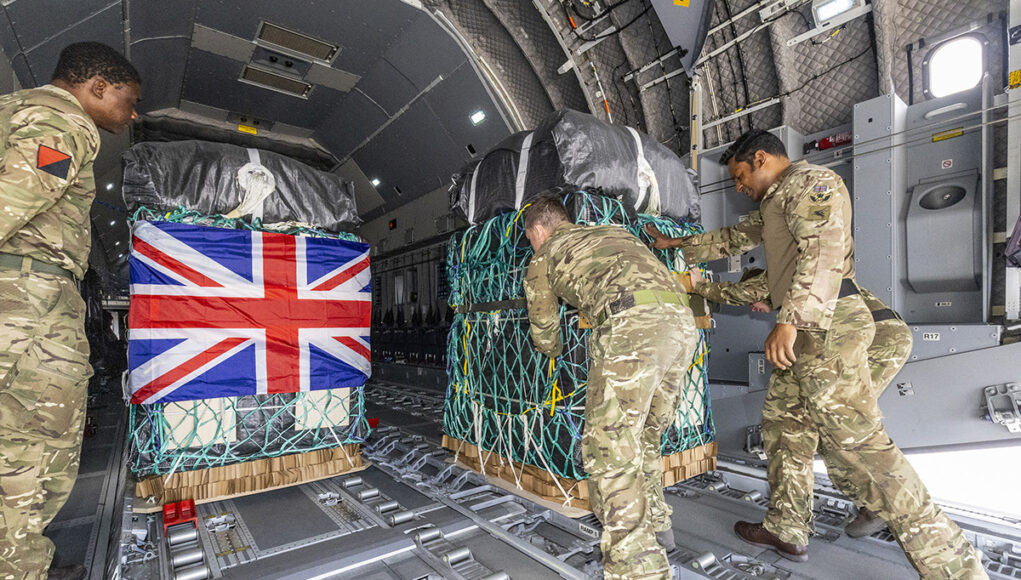
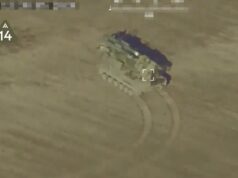

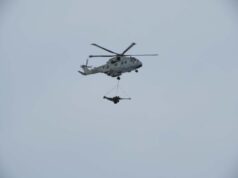


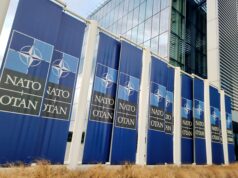
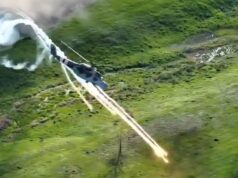
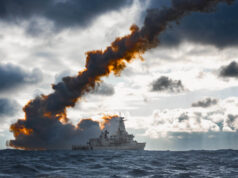
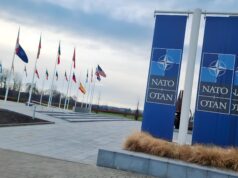


Good article.
Too much obsession on the fighting arms and things that go bang.
Without enablers like the RLC, the pointy end is pointless.
You do realise they operate on the premise ‘stores are for storing’ don’t you😂
Amateurs talk tactics, professionals talk logistics! The Army loves it’s logistics.
As you know, 47AD RLC are a pretty niche, specialist example, supporting DSF as well.
I know but they will always be blanket stackers😉
Or “REMFs”? 😳
Can’t really say that,in my day it was the RCT who were transporting forward and RAOC supplying the goods👍
Agreed! What the article misses out (but fair enough as it was a focussed article) is that RLC do so much more than transporting manpower and materiel. There is a huge diversity of tasks they do. I think they still are the army’s largest grouping by capbadge – 15% of the army’s strength is RLC?
Something like that. Lost the Pioneer Reg though!
Pioneers can be very useful. I remember that a Pioneer unit (maybe a full Regt) was sent to FI after the ’82 conflict to clear up the battlefield and the infrastructure, including civvy houses that had been occupied by the enemy.
Not a glamorous job – and cleaning up the houses of the Islanders was pretty grim – lets say the Argies who occupied them did not always know how to use a flushing toilet!
As we know, Pioneers are in RLC but not in a Pioneer-titled Regiment anymore?
No, 23 Regiment RLC was the last, based at Bicester. I cannot recall if there are any such rolled in the AR but don’t think so.
For some reason anything I post on mobile has to wait for approval?
So having another go on the PC! No, 23 Regiment RLC was the last one several years ago, was based at Bicester. I don’t recall if any AR Regs or sub units have the role, but I don’t think so.
The news passed me by at the time but 23 Pnr Regt was disbanded in 2014 as was the AR Pnr Regt, 158 Regt. Not sure how the army provides a Pnr capability now.
Assume it doesn’t.
Yet another capability lost forever then, like your previous point about losing the regular RLC Rly Sqn and the TA Rly Tp.
I mean not everyone can count blankets professionally!
Soft power is still power.
The Rlc went down hill when it decided to disband the Pioneers. 🟥🟩
I agree that logistics are vital to any war, since attrition will usually dictate the outcome.
That said you also need the production capacity and stockpiles of munitions, gear, etc… to send in the first place, and there all of Nato fails miserably (except the US).
Hopefully Ukraine will have woken up a few politicians across Europe.
You do know that Europe, even pre-Ukraine, had a higher production rate of artillery ammunition than the US right?
The fact we don’t actually know what the MOD or most European countries keep in their stock piles makes the assumption they are all empty baseless.
The U.K. has given loads of ammo to Ukraine and I’d imagine that won’t be more than half of what is stored for the actual forces. Something like 300,000 artillery shells which seeing as the U.K. doesn’t even have that many guns must mean there’s more than enough.
Well yes. How else could we supply so many NLAW so quickly.
We have reserve stocks. Never enough for general war but we’re not alone there.
baseless? sorry to burst your bubble, but a recent gov report highlighted by an article on this site said that UK could only sustain a war effort for about a month.
In France there was a similar report last year which said they could only sustain high intensity conflict for a few weeks. And i am willing to bet that the rest of EU is in similar position if not worse.
FYI 300k artillery shells is not much as we see in Ukraine. Before the US had stopped supplying Ukraine end of last year, the UKR was firing 2k per day while Russia is firing 10k a day (60k at its peak)
and artillery is not the only problem. the Aster missile lead time for order to delivery was 42 months pre Ukraine, MBDA is scaling up to 18 months lead time by 2026.
Just to say, Europe is aware of the production issues and working to improve them, but in reality it takes years to ramp up
Not an artillery man (blue job!) but in a future war involving NATO countries against, say, Russia, could we still end up in an artillery slogging match for months on end (as with Ukr and Russia)? Surely advance weapons, including SEAD/DEAD would give NATO air superiority, keeping the land war comparatively shorter?
plans and theory are nice. but when the shit hits the fan, well plans usually go to shit. ie remember when Russia thought they were going to just roll into Kiev unimpeded, well that didn’t really go according to plan,
your plan also forgets that Russia is a nuclear power with a sizeable arsenal, so if the war is short it might be for the rest of us as well.
According to General Ben Hodges, former commander NATO Europe, we deter ourselves by believing the RF nuclear threats.
Both President Biden and Chairman Xi have been clear with kaputin that he’s not authorised to use nuclear weapons in Ukraine.
We can speculate about which is the more influential but that’s not going to happen. kaputin knows that threats are his best option.
FYI https://edition.cnn.com/2023/09/17/europe/ukraine-shell-supplies-intl/index.html
Oh MS, you wag. Laughing at the idea that you seem to suggest one gun gets one shell to fire!